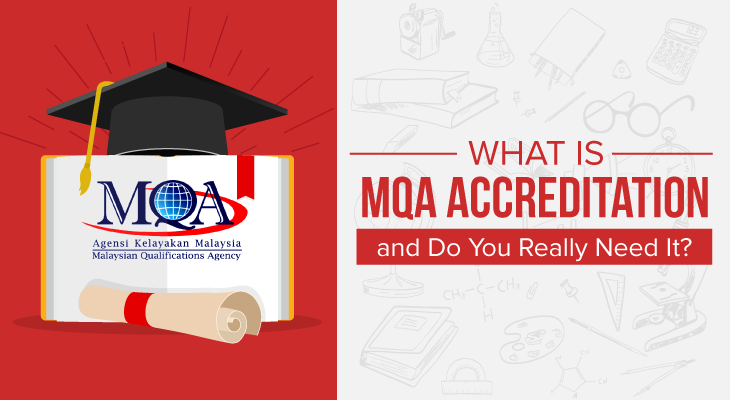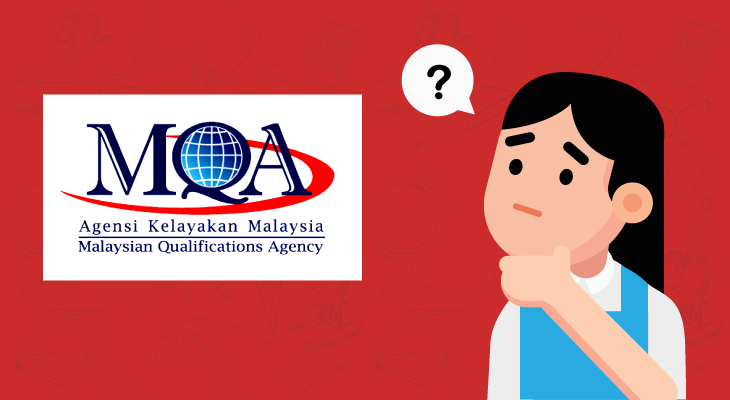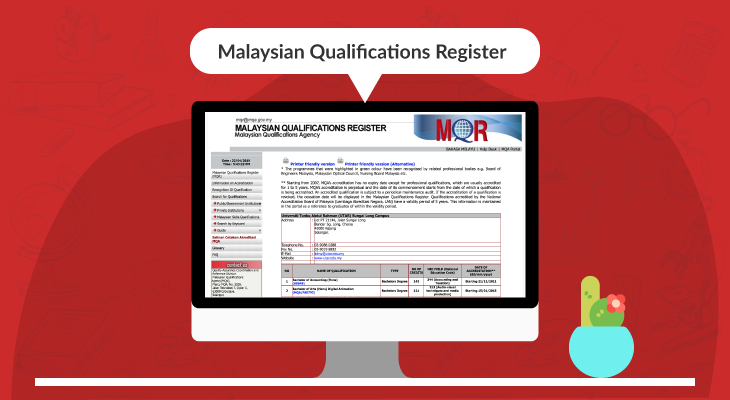What Is MQA Accreditation and Do You Need It?
Unsure about the importance of MQA in your tertiary education studies? Not to worry, we're here to explain what the Malaysian Qualifications Agency is.
Updated 23 Apr 2019

So you’ve finally decided to study the course of your dreams and you can’t wait to begin your brand new life as a college kid. Hold your horses! Before you dash to register for the course, read the fine print to see if it’s accredited by the MQA.
What’s that? You aren’t sure what the MQA is for, or even what it is?
Buckle up, as we’re about to tell you all about the organisation behind the 3 letters M, Q and A.
What is MQA?

The Malaysian Qualifications Agency (Agensi Kelayakan Malaysia) or MQA is a statutory body governed by the Ministry of Education. The main role of the MQA is to carry out the Malaysian Qualifications Framework (MQF) to ensure the quality of Malaysia’s higher education.
The body does this by enforcing course accreditation to regulate the curriculum and operational standards of higher learning institutions. When a course is fully accredited by MQA, it means that the course meets the quality standards of MQA.
To gain course accreditation from MQA and be registered on the Malaysian Qualifications Register, colleges and universities will need to apply to MQA and meet certain quality assurance criteria. This includes complying with the Programme Standards for each course (e.g. how long a course should be, what subjects should be taught, how students should be assessed).
How can you check if your course is accredited by MQA?

To check if your course is accredited by MQA, you can head over to the Malaysian Qualifications Register (MQR) to search for your course. All programmes that are fully accredited by MQA will be listed in this register.
If you can’t find your course listed in the Malaysian Qualifications Register, don’t panic just yet. It may be that your course is provisionally accredited.
Provisional accreditation is often for new courses, as a programme can only be fully accredited when the first cohort of students are in their final year of study. If your course is provisionally accredited, it means that your college or university has taken the first step to meet the minimum accreditation requirements by MQA and that there is a good chance that your programme will be fully accredited by the time you graduate, although it is not guaranteed.
To check if your course is provisionally accredited, you can visit MQA’s provisional accreditation website.
PRO TIP
Don’t assume that your course is accredited just because your university is well-known. Accreditation is by course and not by institution, so it pays to spend a couple of minutes to check if your course is accredited, especially if it’s a new programme.
Why should you care if your course is accredited?

There are several reasons why you may want to make sure that your course is accredited.
(a) You can be assured of the quality of your education
A course accredited by MQA is a signal of quality assurance and shows that your qualification has attained the high quality standards and criteria set by MQA and is in compliance with the Malaysian Qualifications Framework.
Having an MQA accredited qualification can also facilitate your entry into postgraduate studies, especially in local public universities.
(b) You’ll be able to apply for PTPTN
In order for you to apply for a study loan from PTPTN, your course must be accredited by MQA. Additionally, other education loans, grants and scholarships may also require you to study a course that’s MQA accredited.
Apply for university with EduAdvisor
Secure scholarships and more when you apply to any of our 100+ partner universities.
Start now(c) You’ll be able to work for the government
If you want to work for the government, an MQA accredited qualification is a must.
In addition, certain professional industries may also require accredited qualifications in order to enter the industry or pursue professional papers. Such fields include medicine, law, architecture and engineering.
That said, having an unaccredited qualification doesn’t mean it’s the end of the world. You can still look for jobs in the private sector, where employers have more discretion in the hiring process.
Now that you know how much MQA’s accreditation affects your future, you should pay attention to the fine print from now on (a useful skill to have no matter what). All the best with your search for the best college course for you!







